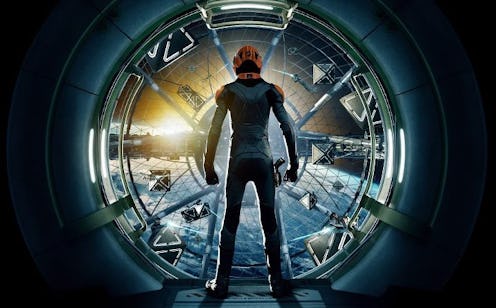Entertainment
To Watch or Not to Watch? The 'Ender's Game' Question

Orson Scott Card's Ender’s Game is a book I finished because I felt like I owed it to myself not to chicken out. Years later, I’m still glad that I did finish it. The book made me uncomfortable; it forced me to stare into another world, one I didn’t like or feel good about, and it unsettled me on a deep, personal level. All of those things your mother — or therapist — tells you are probably good for you.
Ender’s Game has now become a movie, and lots of people planning to boycott it when it’s released this November, a reaction to Orson Scott Card’s long-standing homophobia.
I’m not insensible to this argument. After all, Card’s views are a little bit terrible. In 1990, he wrote that “Laws against homosexual behavior should remain on the books”, and that if his own LDS Church were to lift their ban on homosexuality, it would cause the “destruction of the Church.” He has since then said that the comments no longer represent his views and should be seen in the context of the time. In other words, he’s only as homophobic as is still socially acceptable (but still homophobic). In 2009 he wrote, “Married people attempting to raise children … have every reason to oppose the normalization of homosexual unions.” Until this year, he was also heavily involved in the National Organization for Marriage, which opposes gay marriage.
All of this definitely sucks, and that there has been so much backlash that Lionsgate is attempting to distance the movie from Card is great. It’s also the way it should be. As others have pointed out, the book itself (and by extension probably to movie) is not homophobic at all. In fact, from where I’m sitting, it’s almost the opposite. It's all about being an outsider, about not fitting into a harsh and cruel world, about using that uniqueness to become better than the petty people around you, and about the pain that people who are different go through. The novel doesn’t exactly preach acceptance, and it certainly doesn’t mention homosexuality, but it’s hard to read the story and not feel sympathy for the people who don’t fit in.
It’s not always easy to judge a work of literature by its creator. But I’d even go a step further and say that there’s something downright dangerous about doing so.
Art, good art (which is another conversation in an of itself), should be about something more than its creator. It should, in some small way, transcend the individual and relate to something bigger. It should tell some sort of truth. Which is how a novel by a homophobe like Card might have a message that resonates with a gay reader. Or how a Shakespeare play written centuries before the British Empire existed might be meaningful in post-colonial studies. Or how Brave New World turned out to be eerily accurate. Shiver.
The point is that books can do more than advance the ideology of their authors, and to restrict them to the narrow worldview of their creator is to miss out. I understand not wanting to give Card any money through ticket sales; but to refuse to go see something because you disagree with the creator’s politics strikes me as its own form of small-mindedness. To refuse to buy books or watch movies or follow TV shows when it might profit someone you don’t like sounds like limiting yourself. (Plus, in a world of giant corporations, it might be impossible.) Why should I let someone else’s bigotry limit my access to good art?
Ender’s Game was never an easy story for me, but I read it anyway, because I owed it to myself to get out of my comfort zone. Stay in an ideological bubble and before you know it, you’ll be just like Card himself, afraid of what you inevitably won’t understand. I can't speak for anyone else, but I’m going to see this movie, because Ender’s Game is about more than Orson Scott Card, and that’s the way it should be.